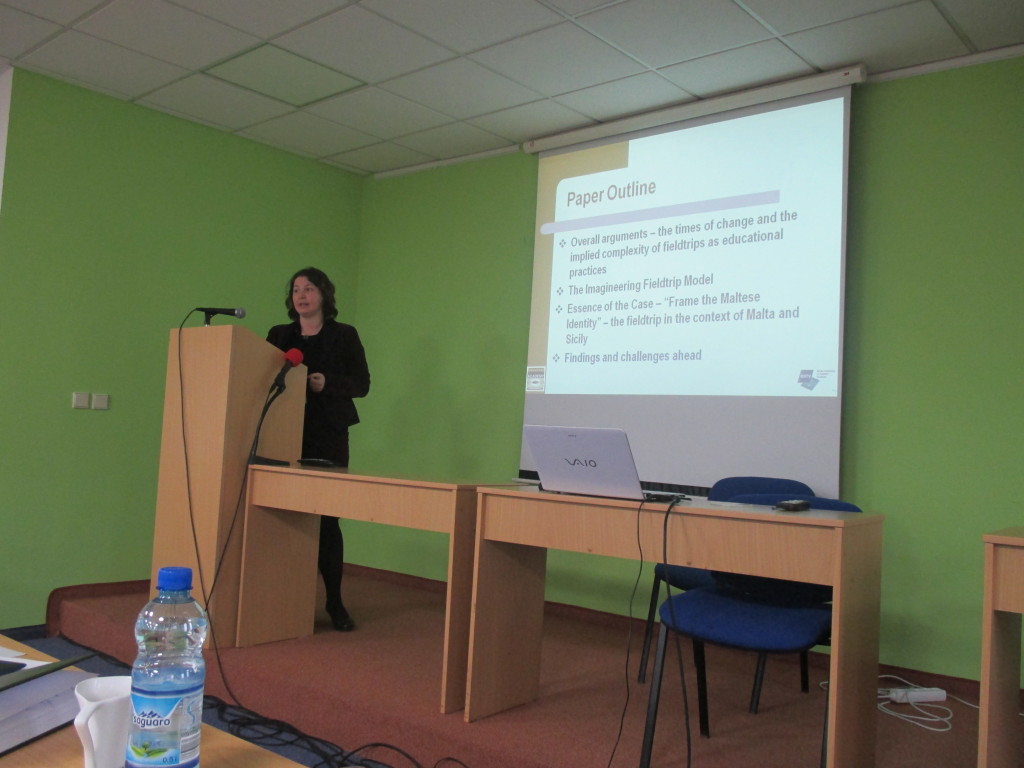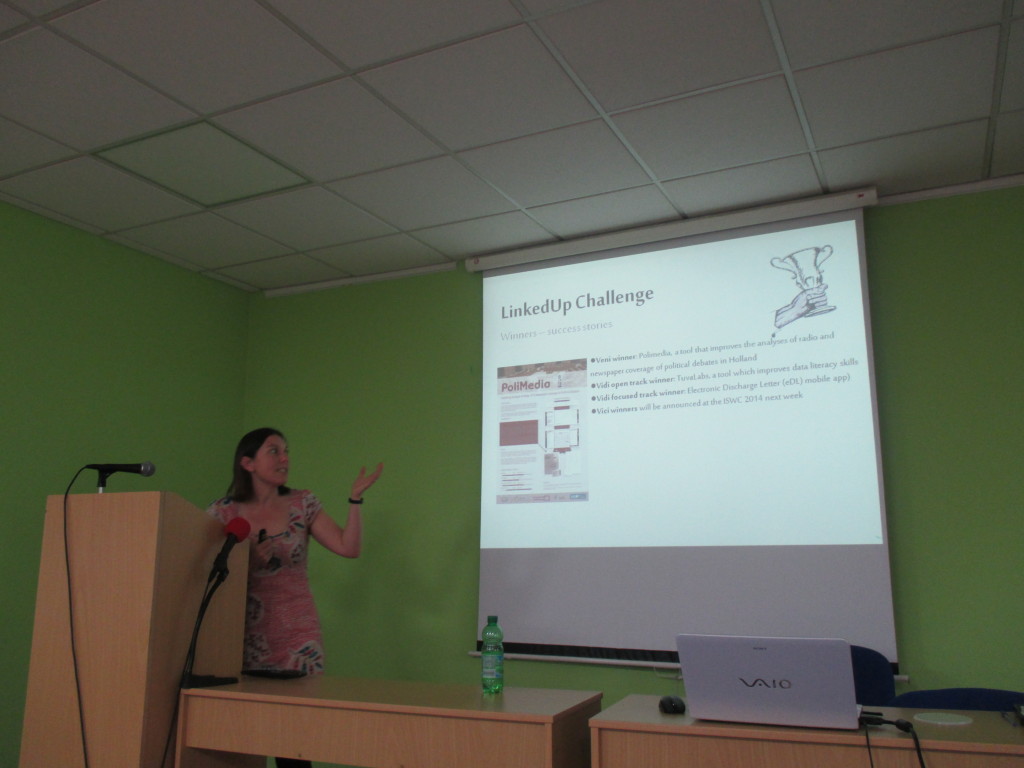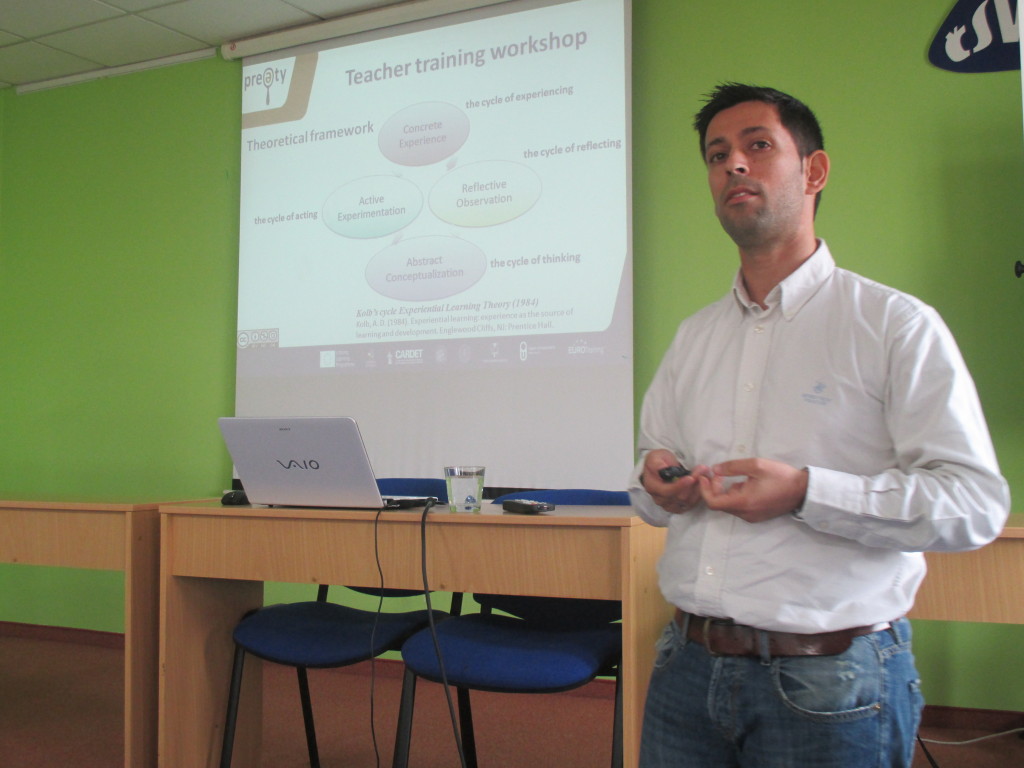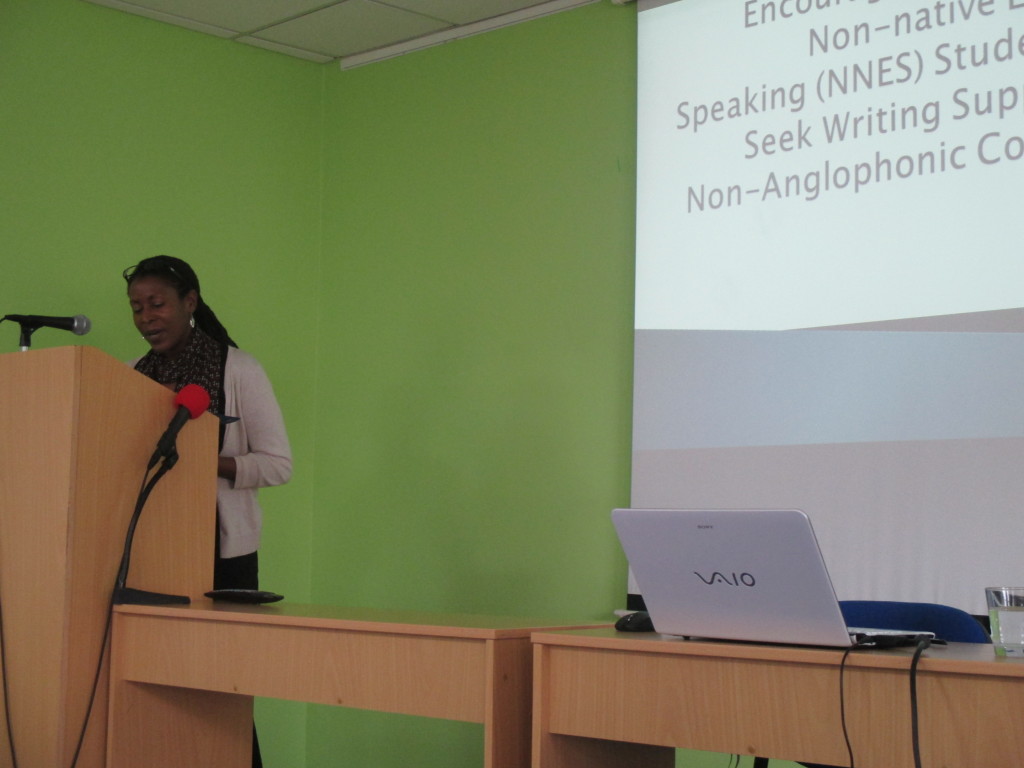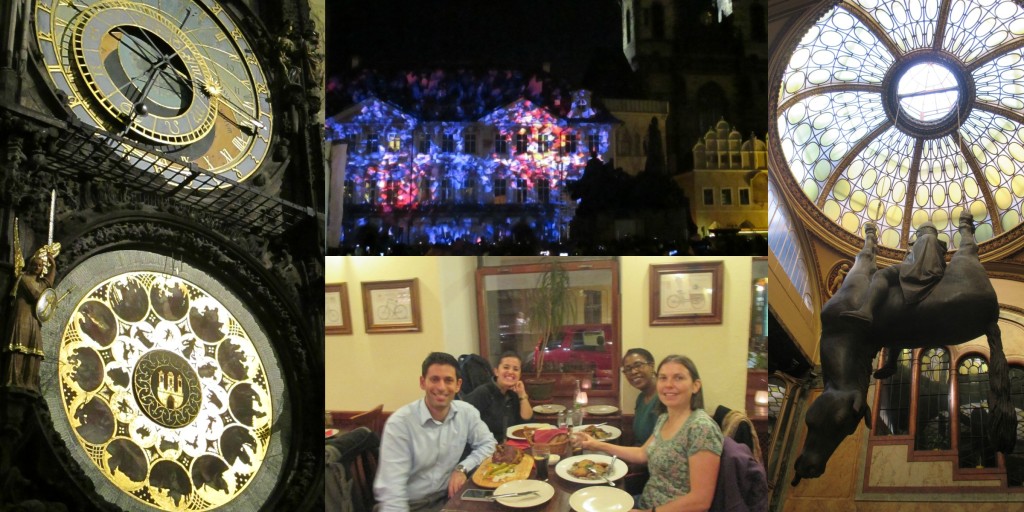MAC-ETEL 2014: Education, Teaching and E-learning
Marieke Guy - October 17, 2014 in events, featured
Earlier today I attended the MAC-ETeL 2014 – Education, Teaching and E-learning Conference (MAC-ETEL) conference held in Prague representing LinkedUp. The conference, organised by associates from the Czech Technical University in Prague, has a very broad remit and covers education and teaching in various forms and how it connects with e-learning. During the day there were 18 different talks so below is just a flavour of each:
Michele Della Ventura, Music Academy “Studio Musica” talked about process, project and problem based learning as a strategy for knowledge building in Music Technology. His institution have been looking at ways to improve the knowledge of students in the area of music technology. Methods include incorporating blended learning, changing the teacher role to that of facilitator and making students protagonist of the learning process through problem based learning.
Liliya Terzieva from the University of Applied Science in the Netherlands gave a great talk about the role of the fieldtrip in the imagineering educational practices. Imagineering follows the theory that the best learning takes place “when groups of people interact physically and perceptually with scientific knowledge, and with each other, in a critical spirit” – see the Imagineering Network. Liliya began by explaining three different types of problem that student may face: simple, complicated, complex and how these can be addressed by linear or nonlinear approaches. The approach on the imagineering course have been bottom up interventions through field trips – allowing students the ability to deal with different situations and come up quickly with relevant approaches.
I then gave a presentation on the outputs of the LinkedUp Project. My slides are on Slideshare and embedded below.
The full copy of the paper is available as a PDF.
Judith Ouellet St-Denis from Univeristy of Quebec gave two presentations. Firstly a look at technopedagogical training for future teachers considering how in-service teachers can learn to integrate ICT in their teaching. This was achieved by face-to-face mentoring and virtual mentoring. Judith’s second presentation was on how they use mind mapping for metacognitive (knowledge about when and how to use particular strategies for learning) competence. They encouraged students to create two types of digital maps (conceptual and procedural) and these maps were analysed quantitively.
Halide Gamze from Okan University in Turkey offered an overview on the benefits of using works from epics to operas for the teaching of epics – how appropriate given that we were in Prague!
Judit Sass from the Corvinus University of Budapest shared some great videos in her talk on the pedagogical and psychological aspects of animation creation as a learning tool. They are used as part of Bring Your Own Device (BYOD) methods.
Arun Kumar Basavaraj from the International Medical University of Malaysia showed us how they have effectively implemented online objective structured practical examination (OSPE). Traditional OPSE uses physical booths to assess core competence skills of students and promotes transparency, but there are challenges – such as space. The University is currently creating an online OSPE and so far 400 students have trialed the system.
Christodoulos Tasouris from the Cyprus Pedagogical Institute talked about the EU-funded PREATY Project (PRoposing modern E-Assessment approaches and Tools to Young and experienced in-service teachers). It aims to share ideas about formative assessment approaches and formative e-assessment tools with and amongst teachers. They have run a series of Teacher training workshops that follow the Microsoft framework for 21st Century skills (ATC21S) and have been using Moodle and ePortfolio tools like Mahara with the teachers.
Post lunch (Smažený sýr for the vegetarians – carb city!) we heard from Minna Maunula from the University of Jyväskylä about a series of web-based thesis seminars they have run in Adobe Connect resulting in a series of best practice approaches.
Bora Aslan of Kirklarei University introduced document watermarking with steganographic techniques. Encryption and steganographic techniques involve hidin data, concealed writing or a copyright into an image or image. Kirklarei University have created an open source tool for carrying out this process – to be released later this year.
Shaana A. Aljoe spoke on encouraging non-native English speaking (NNES) students to seek writing support in non-anglophonic contexts. Apparently NNES students suffer from more anxiety and are less likely to ask for help. Positive approaches include promoting writing support processes, developing students adaptive help seeking strategies over excessive ones and avoiding negative responses when possible.
Krzysztof Olechnicki from Nicola Copernicus University in Poland talked about introducing sociological concepts through photography. Students were encouraged to take photographs that covered the concept of ‘contrasts’. The most interesting area was the ways that ‘success’ and ‘failure’ were defined through the visual literacy process. Also the observation that photography is not an objective process but is an interpretation.
Michael Katz from Haifa University, Israel ended the day by talking about formal schemata (formulas, graphs and tables) and how they can be used in mathematics teaching. He touched on some interesting philosphical issues, so for example intelligence tests test for intelligence – yet intelligence itself is not defined. Michael suggested the use of formula (in words) to teach basic mathematical concepts such as quadrangles.
MAC-ETeL brought together educational practitioners from many sectors, with quite different agendas. Yet it was refreshing to hear how technology and ‘new ways of thinking’ are being used to bring teaching and learning forward. Unfortunately the proceedings are not online or shared openly – this surely needs to be the next step for them!
The conference took place at the same time as Signal – the Prague light festival!
 Open Education Working Group
Open Education Working Group 